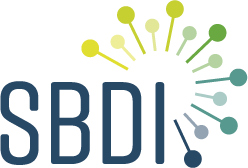To improve the usability of the data and to adhere to FAIR principles, it is important that data publishers follow national and international data standards. The main body of standards for sharing information on biological diversity is Darwin Core (DwC) maintained by the Biodiversity Information Standards (TDWG) organization. Datasets published through SBDI should follow any applicable Darwin Core standards.
Darwin Core standard (DwC)
The Darwin Core standard is a glossary of terms originally conceived to facilitate the discovery, retrieval, and integration of information about modern biological specimens, their spatio-temporal occurrence, and their supporting evidence housed in collections (physical or digital). It provides a stable, standard reference for sharing information on biological diversity, providing stable semantic definitions with the goal of being maximally reusable in a variety of contexts. Please see the GBIF document “Darwin Core Archive How-To Guide” for further information.
Within the TDWG community, Darwin Core Extensions are continuously developed to allow data owners to express data elements that go beyond the current version of the Darwin Core. Swedish biodiversity data providers are encouraged to actively participate as domain experts in this process. SBDI data publishers are strongly recommended to adhere to the established and stable Darwin Core Extensions where appropriate.
More information on which DwC terms to use as well as templates and examples can be found in the section describing different dataset classes that can be mobilized.
Additional resources
- Wieczorek J, Bloom D, Guralnick R, Blum S, Döring M, Giovanni R, et al. (2012) Darwin Core: An Evolving Community-Developed Biodiversity Data Standard. PLoS ONE 7(1): e29715. doi:10.1371/journal.pone.0029715.
- OBIS Darwin Core manual
- Darwin Core terms (via Gcube Wiki)
Ecological Metadata Language (EML)
The main standard for metadata used by GBIF and SBDI is the Ecological Metadata Language (EML), which was originally developed to support the description of ecological research datasets.Other metadata standards may be implemented by SBDI to facilitate sharing of biodiversity datasets with other communities, such as Swedish government agencies and the European museum, libraries and archives community.
Additional resources
For some relatively new and specialized data types, such as Biologging data or Molecular biodiversity data, standards are still in active development. SBDI is engaged in this process, and data owners wishing to share such data are encouraged to contact the SBDI Support Center for up-to-date information on relevant best practices and metadata standards for these data types.
